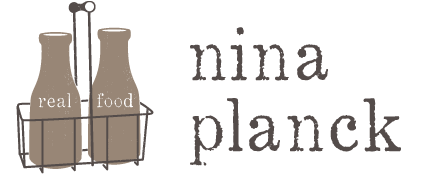New York Times Op-ed: Organic and Then Some
This op-ed by Nina Planck was published in the New York Times on November 23, 2005.
When I first sold my family's vegetables at farmers' markets in Virginia in 1980, Slow Food hadn't been born, and the phrase ''local foods'' was not yet in the lingo. The word ''organic,'' however, was in vogue, and our customers always asked the same question: Are you organic? Nine years old and barefoot, I tried not to appear flummoxed. I stumbled over answers, most of them beginning, ''No, but'' These replies failed to satisfy. People wanted to know in a phrase whether our food was clean and safe. I'm still grateful to the customer who said, ''Explain how you do farm.'' Soon our signs read ''No Pesticides'' or ''Our Chickens Run Free on Grass.''
We had always used ecological methods, like mulching to keep weeds down, but we also used chemicals on a few crops. By the early 1990's, we gave up all those poisons, but we never sought organic certification -- even as organic foods, with
sales growing 20 percent a year, became the hottest niche in the $500 billion food market.
The truth is that we didn't need an organic label. Customers trusted our signs and sales were brisk. In 2002, when the Department of Agriculture's National Organic Program established federal organic standards, amid dire predictions that small farmers would lose market share to organic behemoths, the effect on our farm and income was zilch. The organic rules are irrelevant to farmers like us who sell to chefs, shops and consumers -- and can talk to buyers directly.
Don't get me wrong. The organic standards -- which ban synthetic fertilizer, antibiotics, hormones, pesticides, genetically engineered ingredients and irradiation -- are good for farming, the environment and health…
That's why it is a shame that the Organic Trade Association -- a food-industry group whose members include such giants as Kraft, Dean Foods and General Mills, which own national organic brands -- is seeking to dilute the organic standards…
Whatever the outcome of that fight, consumers should look beyond the organic label and seek out producers that exceed the federal rules… If the organic label loses its meaning, farmers with higher standards will have to devise new ones…
